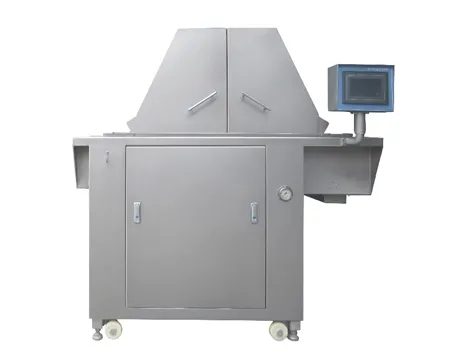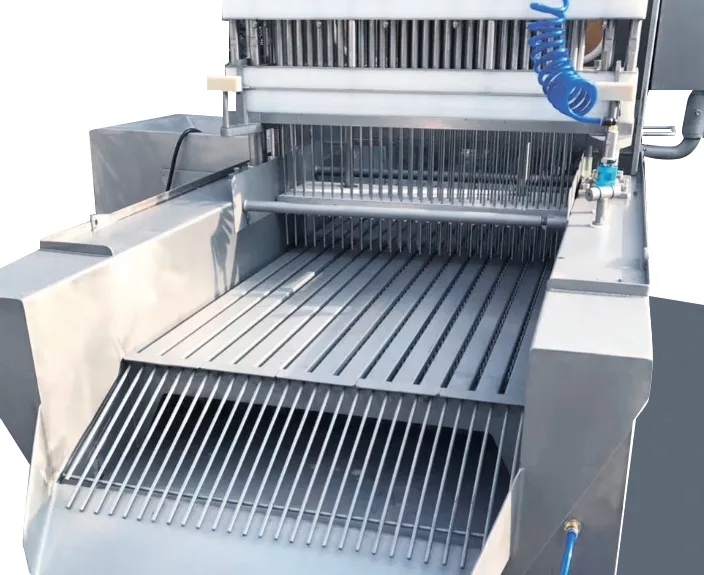
How is Technology Transforming the Future of Meat Processing?
2025-02-15 09:12In today's rapidly evolving meat and poultry industry, companies like Foshan Aokai Machinery Technology Co., Ltd. are at the forefront of innovation, adapting to meet the changing landscape. Here are seven key trends shaping the future of meat processing:
1. Automation and Robotics
The integration of automation and robotics in meat processing machines is revolutionizing the industry. As labor shortages become a pressing issue, companies are increasingly turning to robotic butchering systems. These advanced systems utilize artificial intelligence (AI) to replicate the tasks traditionally performed by skilled butchers, enhancing precision and efficiency. By minimizing human error, these technologies not only improve accuracy but also significantly reduce waste.

2. Data-Driven Decision Making
The use of data analytics and Internet of Things (IoT) devices is enhancing food safety in meat processing. Real-time monitoring of production conditions allows for the identification of potential hazards before they escalate. This proactive approach, combined with blockchain technology, enhances traceability, ensuring that consumers can trust the safety and quality of their food.

3. Sustainable Packaging
As environmental concerns rise, the meat and poultry industry is making strides toward sustainable packaging solutions. Companies are exploring biodegradable and compostable materials, as well as innovations like edible packaging. Active packaging technologies that extend the shelf life of products are also gaining traction, helping to minimize waste and reduce the environmental impact associated with meat processing.
4. Artificial Intelligence and Machine Learning
AI and machine learning are becoming integral to optimizing operations in meat processing plants. By analyzing vast amounts of data, these technologies can predict maintenance needs, manage inventory, and streamline production schedules. This level of efficiency not only reduces downtime but also lowers costs, allowing companies to maximize their operational capabilities.
5. Emphasis on Food Safety
Food safety remains a top priority in the meat processing industry. Advancements in technology enable better monitoring and management of safety standards throughout the production process. With increasing regulatory scrutiny, companies must leverage these technologies to ensure compliance and maintain consumer trust.
6. Consumer Demand for Sustainability
The shift toward sustainability is driven by growing consumer demand for environmentally friendly practices. As consumers become more aware of their purchasing choices, the meat and poultry industry is responding by adopting sustainable operations and packaging solutions, aligning with market expectations and enhancing brand loyalty.
7. Future Trends and Challenges
The meat processing industry is undergoing significant technological transformations that promise to enhance efficiency, sustainability, and safety. Companies like Foshan Aokai Machinery Technology Co., Ltd. must remain adaptable and embrace these innovations to thrive in a competitive market. Staying ahead of trends and addressing challenges will be crucial for future success.
In conclusion, the future of meat processing is being shaped by technology and consumer demands. As automation, data analytics, sustainable practices, and AI continue to evolve, companies must be prepared to innovate and adapt, ensuring they meet the needs of both the industry and consumers.
